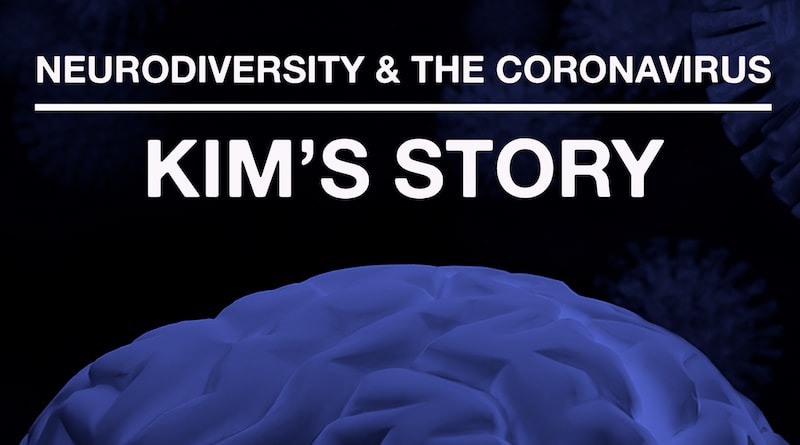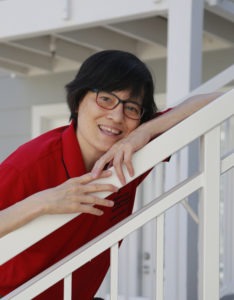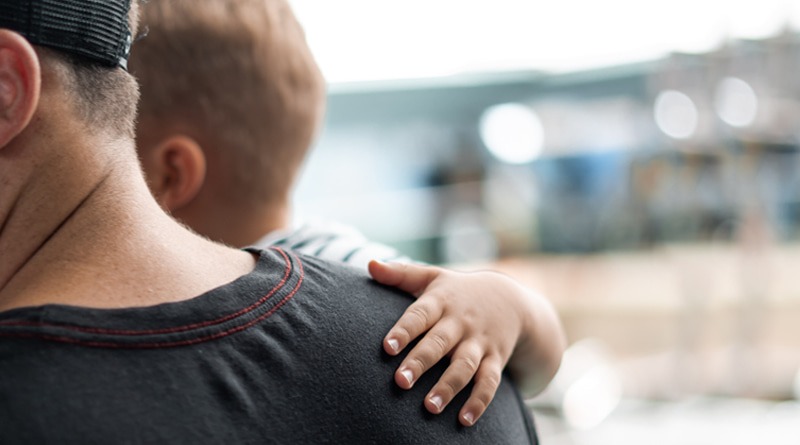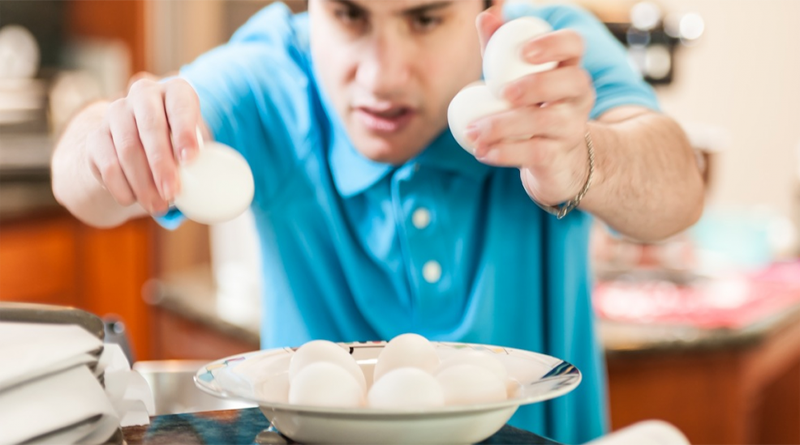
The Coronavirus Pandemic: Kim’s Journey With Autism
The Pandemic: Kim’s Story:
About the author:
Kim Lew grew up in Silicon Valley when it was still the Valley of Heart’s Delight. She graduated from Smith College with a degree in mathematics. Kim was diagnosed in her 40s with Asperger’s. Although she has struggled with major depression since her early teens, she wasn’t diagnosed until she was in her 30s. She is an active Special Olympic athlete and as a Global Messenger. Kim currently teaches second-graders in an after school program.
Life Before the Pandemic:
Q: Describe your everyday life before the pandemic. Include social aspects, such as school, work extracurricular activities, or anything social, like spending time with friends or family.
A: Before the pandemic, I worked in a classroom teaching first and second graders at an afterschool program. I was involved with Toastmasters. As a Special Olympics’ athlete, I enjoyed training in many sports and competing. The other athletes were my friends, and it was fun to see them every week. I am also an Athlete Leader and gave speeches for Special Olympics, Northern California, as well as was Master of Ceremonies at a couple of events. I attended therapy twice a week at an office. I enjoyed going to the library to use the internet, go to the book club, and check out audiobooks.
The Shock of COVID:
Q: Describe how you initially reacted to COVID-19 and the social distancing.
A: Some of my students have family in China. During a parent/teacher conference, I wished one father Happy Chinese New Year. He told me about how New Year’s activities had been cancelled in China due to a virus. That was the first I heard of what was happening in China. I was shocked that all the New Year’s activities were canceled because they are a big deal in Chinese culture. At the time, I didn’t think the virus would affect me even though I know there is a great deal of travel between China and the US. Boy was I wrong!
Since I don’t have a TV nor the newspaper, and lacked internet, the first I heard of the virus coming to the US was when the owner of where I work had a staff meeting. Initially we were told there wasn’t a “lockdown”, and we would take precautions by wearing masks. That abruptly changed and we stopped holding classes in person.
I was annoyed with having to wear a mask because my glasses fog up. I understand the necessity of it and believe the inconvenience of my glasses fogging up is worth it to stay healthy and prevent others from contracting the virus.
I do not call it “social distancing” because there is nothing social about it. I prefer to call it “physical distancing.” I liked how people no longer crowded me in lines at COSTCO or other stores. However, I didn’t like how we could no longer hold classes in person at work.
I was concerned for my elderly parents. My father’s health puts him in the vulnerable population category. Also, the senior center shut down until the pandemic ends and that has caused him to be isolated, which is not good for him.
The run on toilet paper shocked me. I had never seen anything like it. I was also surprised at how cleaning products and food were all bought up. The closest comparable experience I have had to this is how quickly fans run out at stores when the heat of summer comes on, as well as the empty shelves of batteries after an earthquake or a power failure from a storm.
Life & Schedule Changes:
Q: In what ways have your life and schedule changed as a result of the coronavirus?
A: The biggest change in my life was having to get internet at my apartment. It had always been too expensive before. But Xfinity changed its policy to make it available at its lowest rate to all low-income people. It was important for me to get internet because my work moved from being at the office to being at home. Also, my therapy sessions moved to online.
I typically spent Friday afternoons and four hours on Saturdays at a community center creating artwork. This was a fun activity for me. I miss it. Another big difference in my life is that Special Olympics cancelled all sport and competitions, even Summer Games! This reduced my physical activity and socialization.
Because I don’t go out to clubs and bars anyway, and rarely go to a restaurant or movie theater, the shelter in place order hasn’t been too bad. Except for the ways I already mentioned, anyway.
Adapting to the Coronavirus:
Q: What have you had to do in order to adapt to these circumstances?
A: All my work colleagues and I had to adapt to teaching online. We learned Zoom by necessity, and it was difficult for me at first. Additionally, I had to learn new teaching materials and a new style of teaching. Some students dropped out of the program and that made me sad because I miss them. Then, when the owner’s landlord would not negotiate the lease to reduce the rent, my worksite was closed. Not only that, my hours were reduced. Fortunately, for now, I have a job.
I tried to come up with a way to replace those and decided to take on an online TEFL (Teaching English as a Foreign Language) course. I’m still working on it and after I finish, I hope to get some contract hours with a company to teach English online.
The staff of Special Olympics Northern California/Nevada has been incredible! They created a huge amount of online programming. The 49ers and Raiders even have done several special fitness Zoom meetings for the athletes. We’ve had a couple of competitions from “Home.” These were all done with training sessions for a few weeks with all of us participating athletes practicing by ourselves where we live. Then, we recorded how well we did performing the skills for the sports we signed up for. This culminated in award ceremonies that I got to be one of the MCs for. It was fun, but not as much as in person practices and competitions.
Also, one of the board members for Special Olympics Northern California/Nevada started a weekly Zoom meeting and a Facebook group to connect athletes, coaches, and staff together, but mostly to provide a forum for the athletes to see and talk to each other. It has been a great way to learn more about each other. Typically, a coach will interview an athlete (or an athlete interviews a coach or staff person) and then everyone on the Zoom can ask questions. Since the meeting is for all of Northern California, it has been a good way to meet people from outside my county.
Autism & COVID-19:
Q: If you are neurodiverse, how has this pandemic affected your conditions, or how have your conditions affected how you’re dealing with the pandemic?
A: I’m autistic. I wasn’t getting together with people often before the pandemic since I don’t have many friends (not unusual for an autistic person). Because of this, I don’t think not being able to go out has affected me as much as the majority of other people.
My routine has changed. I now exercise in the mornings and I don’t work as late in the evenings. This was an adjustment. I don’t like my routine changing. But now this new routine has become routine, so things have improved.
Life Lessons & Advice:
Q: What have you learned about yourself during these circumstances?
A: I have learned that I can adapt faster than I previously thought. I also learned that many people will not take precautions by physically distancing and wearing masks even though this means they and others will get sick. I also learned that despite scientific evidence, people will claim it is all a hoax! That really surprised me. My father was an engineer, and my mother is a nurse, so I was raised believing in science.
I have also learned that people will donate food and other supplies to those that are struggling because of reduced incomes due to the pandemic. They will spend many hours making masks for healthcare workers. They will come up with creative ways to cope with the new norm and even try to make other people’s lives more pleasant. An example of this is whoever has created goofy instructions on the sidewalk near where I live telling walkers to do the Hokey Pokey, walk like a dinosaur, spin around three times, and other fun things. Whoever did this, “Thank you.” It brought a smile to my face and made my walk entertaining.
Q: What advice would you give to someone that’s having a difficult time dealing with the coronavirus?
A: I’d advise people to create a routine for yourself and to be sure to include exercise in that routine. Go for walks outside every day. Enjoy the reduction in pollution. Play with your pet. Drive your car three times a week for at least 15 minutes at a time to keep from having to replace your car’s battery. I found this out the hard way when my two-year-old battery died, and I had to replace it. (It was only ten days past the warranty expiration date, too.) Take a class. This is the perfect time because they are all online. That means you can enroll in a course from someplace you never dreamed of being able to before. Finally, work on decluttering your living environment. Now is the ideal time to tackle that task.
Story by: Kim H.
Interviewed on: February 10th, 2021
Julia Futo was born on August 5th, 1999, in Fort Lauderdale, Florida. She faced difficulties early on in life with trying to perform everyday tasks. Before she was five years old, she was diagnosed with two learning disabilities: Encephalopathy and developmental coordination disorder (DCD). She struggled in school for a long time, but that changed when she took journalism in high school and learned how to become an advocate. She is currently in college and hopes to help others find their voices.





